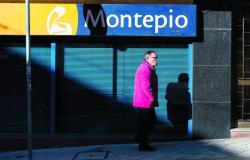
GOING BACK TO WORK AFTER EASTER
This Monday, markets such as Hong Kong, New Zealand and Australia are on pause due to the Easter holidays, while Japan and China operated normally, with mixed movements due to lower liquidity due to the absence of Hong Kong.
With Europe and the United Kingdom still off, the United States and Brazil resume their activities, anticipating a calmer week overall in the market.
The last week, despite being calm, brought the US PCE index, which came as expected, minimizing the impact of the recent statements by Christopher Waller, from the Fed, about the hesitation in starting interest cuts as early as June.
Futures in the US started the day positively, encouraged by indicators of moderate inflation globally and the recovery in China, evidenced by March PMIs that exceeded expectations.
This data suggests a stabilization in China’s growth, welcome news that could have a positive impact on the commodities market and countries that depend on Chinese demand.
In short, the economic scenario appears constructive, keeping the market in an optimistic perspective.
The week promises a lot of data that could strengthen this perception, giving some additional support to financial assets.
Seeing…
00:48 — Brazil’s direction
Last week, Ibovespa closed Thursday (28) with a slight increase of 0.33%, reaching 128,106 points, despite having dropped 4.53% in the first quarter.
This movement contrasted with the strong performance of the main stock indices in New York, driven by expectations of interest rate cuts in the United States and by economic and corporate results that surprised positively.
The highlight was robust data from the American labor market, which suggests possible limitations to a more extensive reduction in interest rates.
In Brazil, the expectation of a final Selic rate of around 9%-9.5% appears to already be adjusted in market projections, reflecting the belief that lower interest rates globally continue to support investments in risky assets.
We are in an advanced stage of the Selic reduction cycle, while Brazilian inflation shows greater persistence than anticipated, particularly in sectors more linked to economic activity.
This scenario forced the Central Bank of Brazil to adopt a more neutral stance, seeking greater room for future maneuvers.
The release of the Copom minutes shed light on “domestic uncertainties”, relating them to the increase in the minimum wage and the potential impacts on inflation, especially in services.
With the June Copom meeting still uncertain, the focus of attention for the week includes the release of industrial production for February, on Wednesday, and the primary result of the consolidated public sector for February, on Friday, crucial elements for future projections of national monetary policy.
01:51 — The doors should be open
In a global context that points to growing isolationism, the prospects for progress for Brazil may face challenges.
It is worth remembering the example of the Doha Round, a multilateral effort under the auspices of the World Trade Organization (WTO), initiated in Doha, Qatar, in 2001, with the aim of fostering the liberalization of world trade and promoting global development.
These negotiations covered critical topics such as agriculture, market access, intellectual property rights and services.
However, due to the lack of consensus between the countries involved, the Doha Round negotiations were unsuccessful, marking the end of discussions in 2015.
This episode highlighted the complexities and challenges of achieving significant progress on trade agreements through consensus-based negotiations, indicating a shift towards agreements more focused on specific groups of countries.
Despite the progress made in recent decades, Brazil remains among the most protectionist countries in the world, with high tariffs and a series of non-tariff barriers.
There is a certain reluctance on the part of Brazil to open up more significantly to international trade and engage more deeply in globalization processes.
With recent global developments, this stance tends to strengthen as an argument for those who prefer to keep the country isolated, which could have a negative impact on the national industry, although agriculture still finds ways to excel.
It is crucial that Brazil does not miss the opportunity to engage in the regionalization trend, seeking strategic alliances that can strengthen its position in international trade and guarantee its development in an increasingly divided world.
02:45 — Employment data
In the US, the Federal Reserve’s decision in June remains uncertain. Recently, the inflation indicator most monitored by the Fed showed a deceleration to 0.3% in February, a value below that recorded in January and expectations of 0.4%.
In annual terms, the PCE index (personal consumption expenditures) grew 2.5% and its core, which excludes food and energy, grew 2.8%, both meeting analysts’ expectations.
Still, despite inflation numbers being under control and in line with market forecasts, Fed President Jerome Powell chose not to make firm promises during his appearance on Good Friday.
The market’s focus now turns to updates on the job market. The latest Job Openings and Labor Turnover Survey (JOLTS) is scheduled to be released on Tuesday, followed by ADP’s private employment report for March on Wednesday.
The highlight of the week will be the release of data on non-agricultural employment in the US, scheduled for Friday.
Economists anticipate an addition of 216,000 jobs in March, indicating a slowdown compared to the 275,000 jobs added in February. Lower-than-expected numbers can give strength to the market.
03:42 — What’s happening with the yen?
The Japanese yen is trading just above $151, marking one of its lowest rates in 34 years and sparking rumors of possible government intervention.
Japan has long been dealing with an unusual economic dilemma: deflation.
While most central banks around the world have raised interest rates to address inflation, Japan only recently ended its negative interest rate policy.
Theoretically, the yen should appreciate with the rise in interest rates, as more expensive money implies less supply – the logic of supply and demand should prevail. However, the expected result did not materialize.
The Bank of Japan, cautious not to discourage consumption, reinforced its objective of keeping borrowing costs low, in a move that could be interpreted as “we raise interest rates once and that’s it for now.”
Meanwhile, the American Federal Reserve (Fed) indicates that it will keep interest rates high for longer, keeping the dollar more valued compared to the yen. Faced with this prospect, investors began to dump their yen in favor of the dollar.
A weaker yen complicates Prime Minister Fumio Kishida’s situation, making Japanese imports – notably energy – more expensive.
04:33 — What to do with Venezuela?
Even with the United States’ attention focused on the Russian invasion of Ukraine, the conflicts in Gaza and tension with China, a closer problem has proven equally complicated for President Joe Biden: Venezuela.
Nicolás Maduro, the country’s dictator, is preparing to conduct supposed presidential elections under growing suspicions of fraud.
Last year, the Biden administration eased sanctions imposed on Caracas, hoping in return for Maduro’s promise of free and fair elections.
The motivation behind this concession was to allow Venezuela to increase its oil production and sales, helping to stabilize US gasoline prices.
However, the electoral scenario in Venezuela is far from reflecting the promise. The exclusion of María Corina Machado, a prominent opposition figure, and her lesser-known successor, Corina Yoris, from the electoral contest highlights authoritarian actions that are hallmarks of dictatorial regimes.
Maduro, aware of popular dissatisfaction and fearing the loss of power if democratic alternatives gain a voice, appears to be resorting to tactics to maintain control.
Recently, the American State Department condemned Maduro’s violation of the agreement, signaling possible consequences, and even Brazil expressed criticism of these maneuvers, highlighting global concerns about democratic decline.
Tags: Stock market today Dollar rises reaches highest level months Ibovespa retreats banks Wall Street
--




